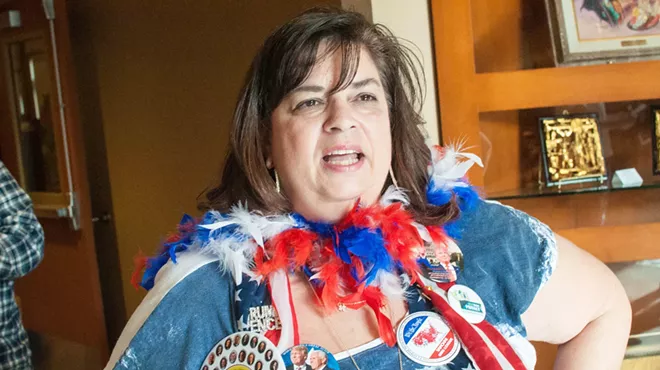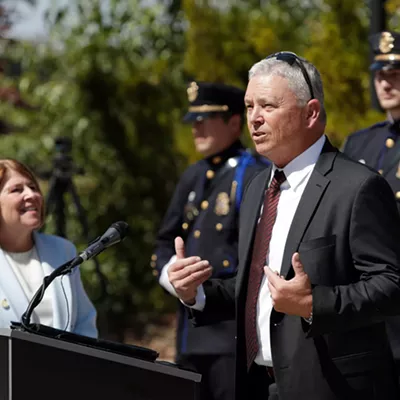So when Spokane County Prosecutor Larry Haskell and Assistant Police Chief Justin Lundgren with the Spokane Police Department, both members of the criminal justice reform group, voted against a nonbinding principle calling for racial equity in the justice system, it stung.
"I was disappointed," says Spokane City Council President Breean Beggs and a member of the Justice Task Force. "It's hard for me to imagine that it wouldn't be a goal of everybody that our criminal justice system treats everyone equally. That seems so fundamental to our society and our Constitution."
The controversy stems from a Jan. 8 meeting of the Justice Taskforce, a group of regional officials working on that have been meeting since last year to develop recommendations for the Spokane County Board of Commissioners on how to approach chronic overcrowding in the Spokane County Jail. At the Jan. 8 meeting, the group voted on a series of "guiding principles" that were submitted to the county commissioners along with a set of reform-minded policy recommendations. One of them was: "We are committed to pursuing a criminal justice system that ensures racial equity and equity across all identities."
At the meeting, Haskell, who ultimately voted against the principle, argued that the group hadn't properly defined "racial disparity in the jail" — past research has shown that people of color are locked up in the Spokane County Jail at higher rates than whites — or looked at the potential causes of racial disparities in the criminal justice system.
"You have to look at what the causes are and that includes who is committing what crimes, how frequently, how many convictions to they have, what is the driver of the bail decisions that ultimately are made by the court," Haskell said. "You've got to define the terms and look at what are the potential causes of racial disparity."
Beggs took at a stab at articulating the intent of the principle at the meeting, citing racial disproportionality in the local jail population and a recent news story that found that the Washington State Patrol searches non-white drivers at much higher rates than white drivers.
"That shouldn't exist," he said. "So we should be implementing whatever reforms we are towards rectifying that current racial disparity."
In an email responding to the Inlander's request for comment, Haskell expanded on his thinking:
"Equity and equality do not have the same meaning. The Constitution and our statutory scheme guarantee equal treatment under the law. Equity deals with outcomes for individuals that are governed, in large part, by one’s right to make choices," he writes. "In most instances that I address here in our office, poor outcomes are the result of poor choices. I am, and always have been, committed to equal treatment of all persons under law."
Ultimately, Haskell and Assistant Police Chief Justin Lundgren voted against the principle.
Similarly, Lundgren writes in a statement that he wanted language that focused on studying the root causes of racial disparities in the criminal justice system, noting that the task force only voted on the original principle.
"It is my opinion that there is great value in broadly studying the issue in our own community to understand why racial disparity exists in the local jail population. It is a complicated and important issue that requires comprehensive analysis," he writes. "The initial racial equity principle that was ultimately passed by the [Justice Task Force] did not emphasize the importance of identifying the root causes of the issue."
But the arguments don't hold much water for critics.
"It seemed like he was saying that because black people have more convictions that's why they get sentenced longer," Beggs says. "That's a misunderstanding of the problem of implicit bias within our criminal justice system."
"They have a lot of power over people’s lives. And they can either reinforce an implicitly biased system or work to counteract it. I did not hear that they were going to work to counteract it and that’s what was disappointing to me," he adds. "If you’re not even willing to aspire to that principle with those words, then that’s challenging for the rest of us."
Kurtis Robinson, president of the Spokane NAACP, says that he thinks Haskell's comments reflect a reluctance to grapple with the issue of race in the criminal justice system.
"As involved as he's been in his career as a county prosecutor, none of this is new information," Robinson says. "The racial disparity in the system is not new information. So for him to bring that up ... [it] seems to imply a resistance to grapple with the deeper issues here."






















